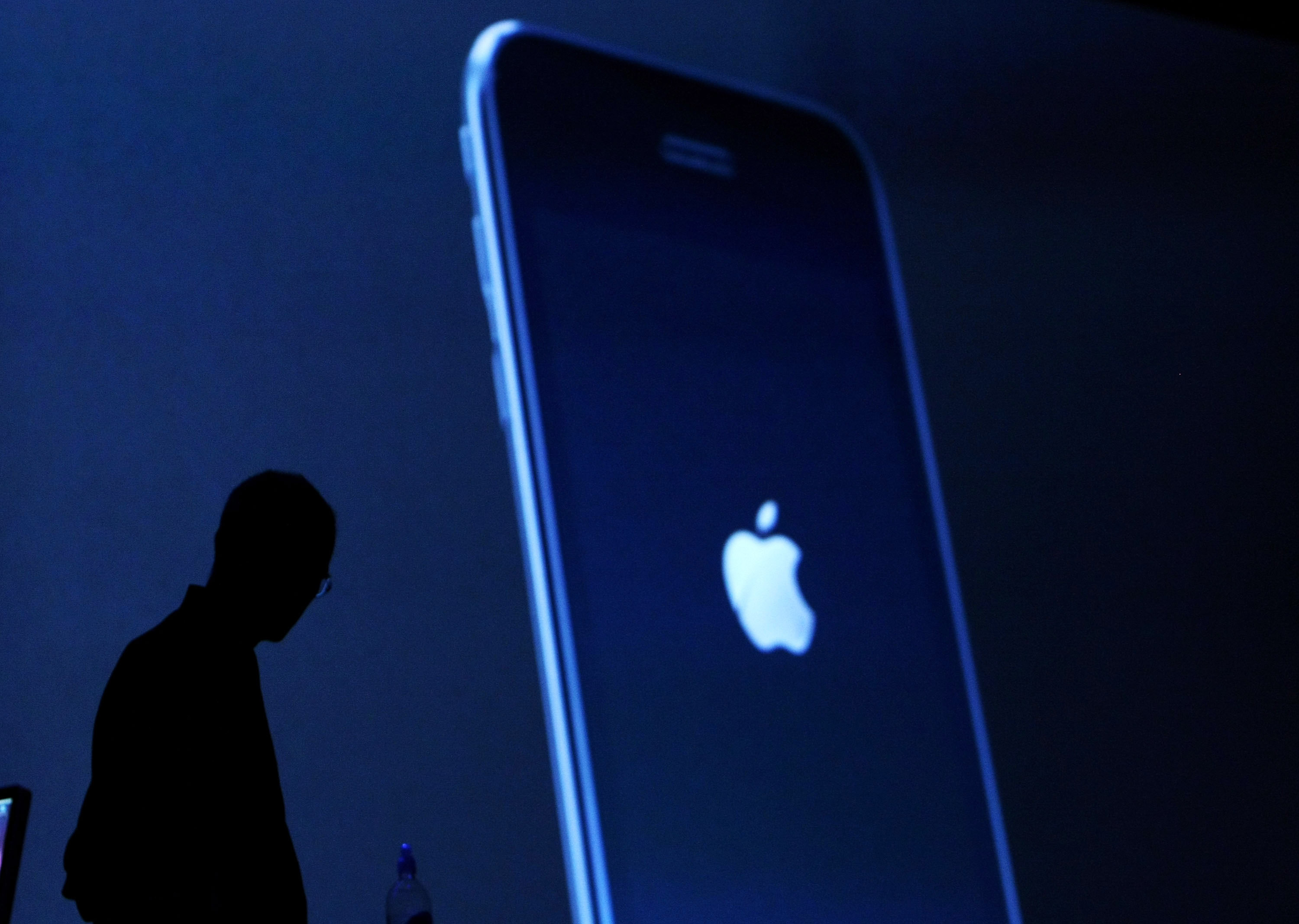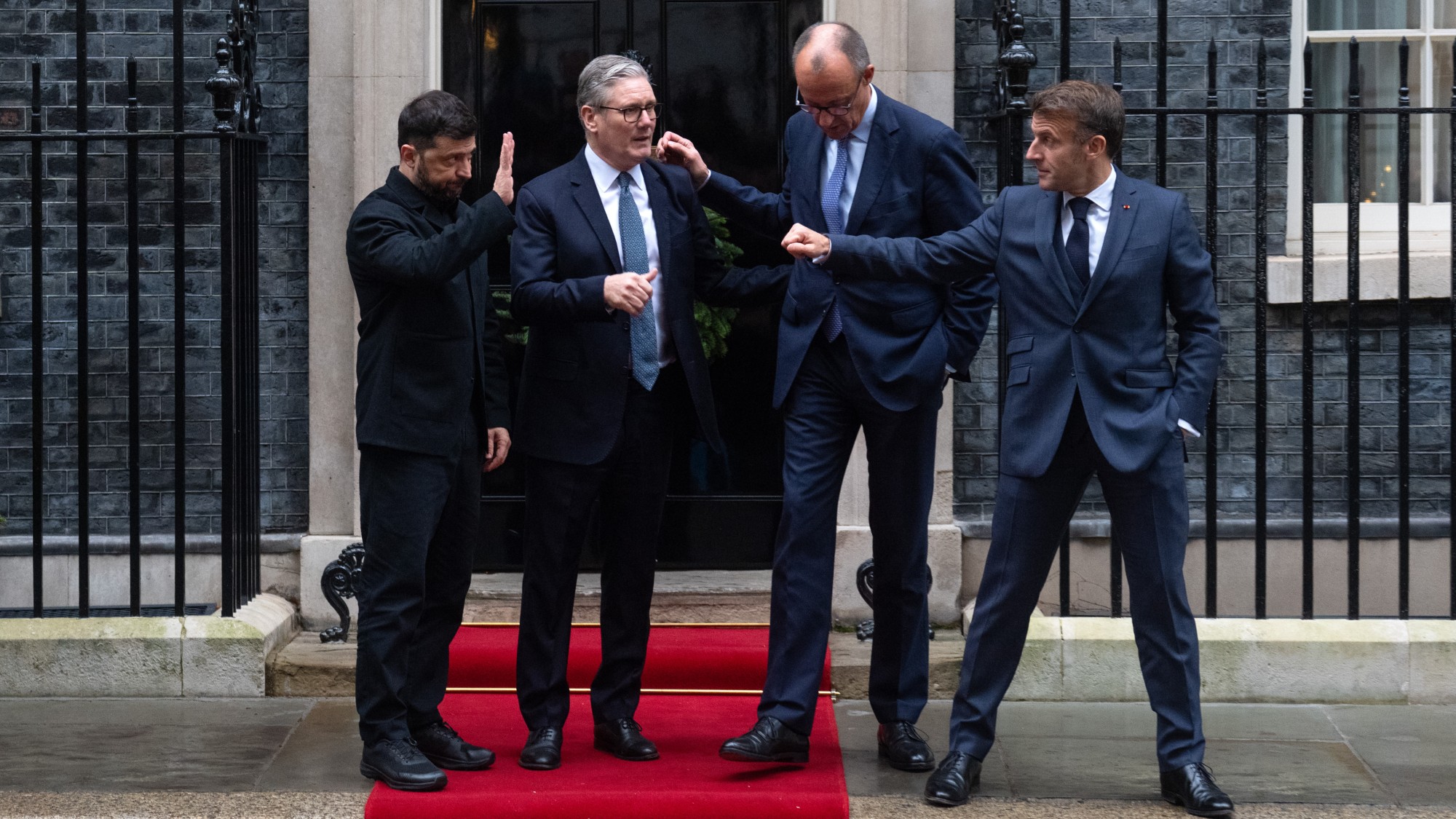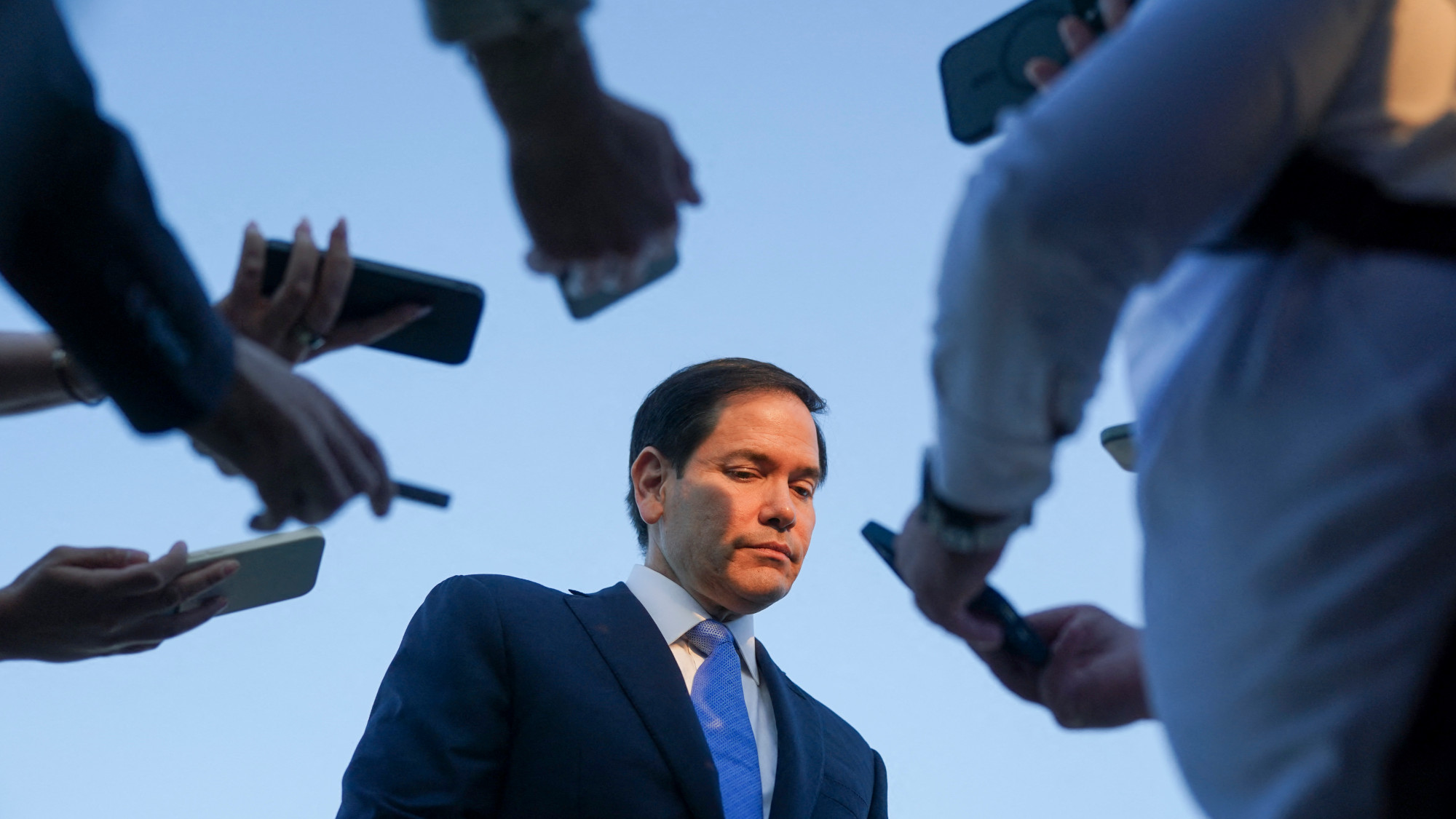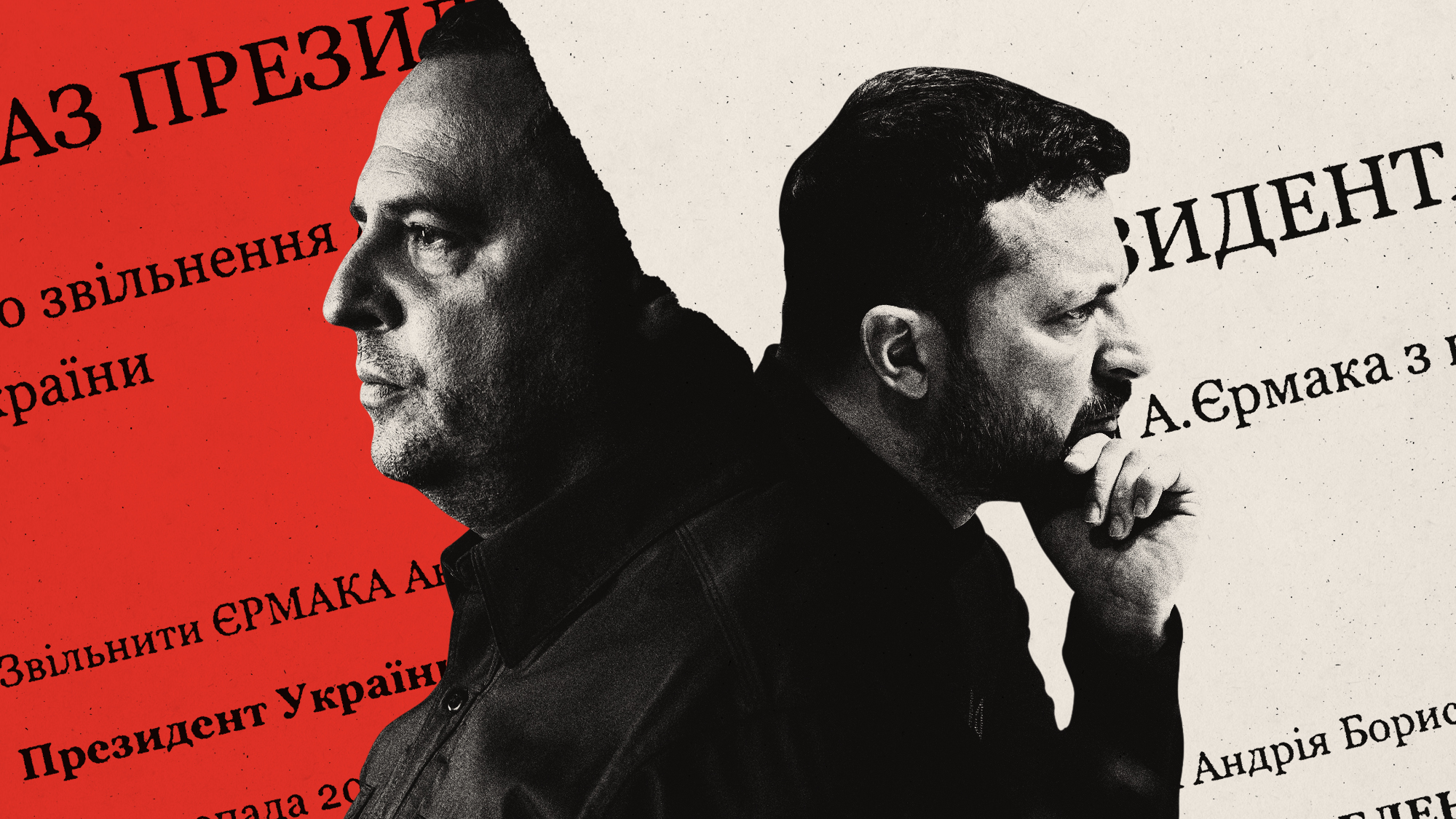Why Apple is under fire for labelling Crimea as a Russian territory
The US tech giant has changed how the disputed territory is listed on its mapping and weather apps

A free daily email with the biggest news stories of the day – and the best features from TheWeek.com
You are now subscribed
Your newsletter sign-up was successful
Tech giant Apple is at the centre of a geopolitical row over how the disputed territory of Crimea is identified on its apps.
Critics are claiming that the US company has “capitulated” to pressure from Moscow, after it emerged that the border between Crimea and the Russian region of Krasnodar Krai has been removed from the versions of Apple Maps and Apple Weather seen by Russian users, Quartz reports.
The Crimean Peninsula, on the north side of the Black Sea, was seized from Ukraine by Russian military forces and Russia-backed militants in 2014, triggering international condemnation. Indeed, “most of the world doesn’t recognize Crimea as part of Russia,” says the news site. “But Apple does.”
The Week
Escape your echo chamber. Get the facts behind the news, plus analysis from multiple perspectives.

Sign up for The Week's Free Newsletters
From our morning news briefing to a weekly Good News Newsletter, get the best of The Week delivered directly to your inbox.
From our morning news briefing to a weekly Good News Newsletter, get the best of The Week delivered directly to your inbox.
What’s the background here?
Five years ago, a revolution led to the overthrow of Ukrainian President Viktor Yanukovych, and in the chaotic aftermath, Russia forcibly annexed neighbouring Crimea.
Russia claimed the move was necessary to protect citizens of the predominantly Russian-speaking peninsula from violence and repression by Ukrainian nationalists.
But many world leaders condemned the annexation as illegal and refused to recognise Russian sovereignty over Crimea. The G8 suspended Russia’s membership and imposed sanctions on the country as punishment.
A free daily email with the biggest news stories of the day – and the best features from TheWeek.com
Amid the ongoing tensions, both Russia and Ukraine have both been “highly sensitive to the way global companies identify Crimea”, says US-based NBC News.
–––––––––––––––––––––––––––––––
For a round-up of the most important stories from around the world - and a concise, refreshing and balanced take on the week’s news agenda - try The Week magazine. Start your trial subscription today –––––––––––––––––––––––––––––––
What has exactly Apple done?
When viewed on Apple Maps and Apple Weather from the US and most other parts of the world, Crimea is listed simply by its name, and no home country is given for the peninsula, Gizmodo reports.
But this week, Moscow-based BBC journalist Will Vernon tweeted that Apple “has complied with Moscow’s demands to show Crimea” as Russian territory by redrawing national borders on the Russian version of the apps and labelling the region as “Russia”.
The State Duma, the Russian parliament’s lower house, then issued a statement saying that “inaccuracies [in the apps]…were finally eliminated”.
Senior Russian lawmaker Vasilii Piskarev added that he had been informed about the changes personally by a Moscow-based Apple representative.
“Crimea and Sevastopol now appear on Apple devices as Russian territory,” the State Duma statement read. “Apple fulfilled its obligations and brought the applications on its devices in compliance with the requirements of the Russian legislation.”
And the response?
“Let me explain in your terms, @Apple,” tweeted Vadym Prystaiko, Ukraine’s foreign minister. “Imagine you’re crying out that your design & ideas, years of work & piece of your heart are stolen by your worst enemy but then smb [somebody] ignorant doesn’t give a damn about your pain. That’s how it feels when you call #Crimea a [Russian] land.”
In a separate, earlier tweet, he wrote: “Iphones are great products. Seriously, though, @Apple, please, please, stick to high-tech and entertainment. Global politics is not your strong side. #CrimeaIsUkraine.”
Ukraine’s US embassy was equally critical, tweeting: “We guess Ukrainians not giving any thanks to @Apple this #Thanksgiving. So let’s all remind Apple that #CrimeaIsUkraine and it is under Russian occupation - not its sovereignty.”
This is not the first time Apple has landed in hot water over geopolitical issues. Last month, the company provoked criticism by hiding the Taiwan flag from the emoji keyboard of users whose iOS region is set to Hong Kong or Macau.
As Edgadget notes, the move “seemingly complied with China’s push to remove any symbols of sovereignty related to the territories it claims to own”.
-
 Film reviews: ‘Send Help’ and ‘Private Life’
Film reviews: ‘Send Help’ and ‘Private Life’Feature An office doormat is stranded alone with her awful boss and a frazzled therapist turns amateur murder investigator
-
 Movies to watch in February
Movies to watch in Februarythe week recommends Time travelers, multiverse hoppers and an Iraqi parable highlight this month’s offerings during the depths of winter
-
 ICE’s facial scanning is the tip of the surveillance iceberg
ICE’s facial scanning is the tip of the surveillance icebergIN THE SPOTLIGHT Federal troops are increasingly turning to high-tech tracking tools that push the boundaries of personal privacy
-
 The high street: Britain’s next political battleground?
The high street: Britain’s next political battleground?In the Spotlight Mass closure of shops and influx of organised crime are fuelling voter anger, and offer an opening for Reform UK
-
 Vance’s ‘next move will reveal whether the conservative movement can move past Trump’
Vance’s ‘next move will reveal whether the conservative movement can move past Trump’Instant Opinion Opinion, comment and editorials of the day
-
 What have Trump’s Mar-a-Lago summits achieved?
What have Trump’s Mar-a-Lago summits achieved?Today’s big question Zelenskyy and Netanyahu meet the president in his Palm Beach ‘Winter White House’
-
 Who is paying for Europe’s €90bn Ukraine loan?
Who is paying for Europe’s €90bn Ukraine loan?Today’s Big Question Kyiv secures crucial funding but the EU ‘blinked’ at the chance to strike a bold blow against Russia
-
 Will there be peace before Christmas in Ukraine?
Will there be peace before Christmas in Ukraine?Today's Big Question Discussions over the weekend could see a unified set of proposals from EU, UK and US to present to Moscow
-
 Is a Reform-Tory pact becoming more likely?
Is a Reform-Tory pact becoming more likely?Today’s Big Question Nigel Farage’s party is ahead in the polls but still falls well short of a Commons majority, while Conservatives are still losing MPs to Reform
-
 Ukraine and Rubio rewrite Russia’s peace plan
Ukraine and Rubio rewrite Russia’s peace planFeature The only explanation for this confusing series of events is that ‘rival factions’ within the White House fought over the peace plan ‘and made a mess of it’
-
 Andriy Yermak: how weak is Zelenskyy without his right-hand man?
Andriy Yermak: how weak is Zelenskyy without his right-hand man?Today's Big Question Resignation of Ukrainian president’s closest ally marks his ‘most politically perilous moment yet’